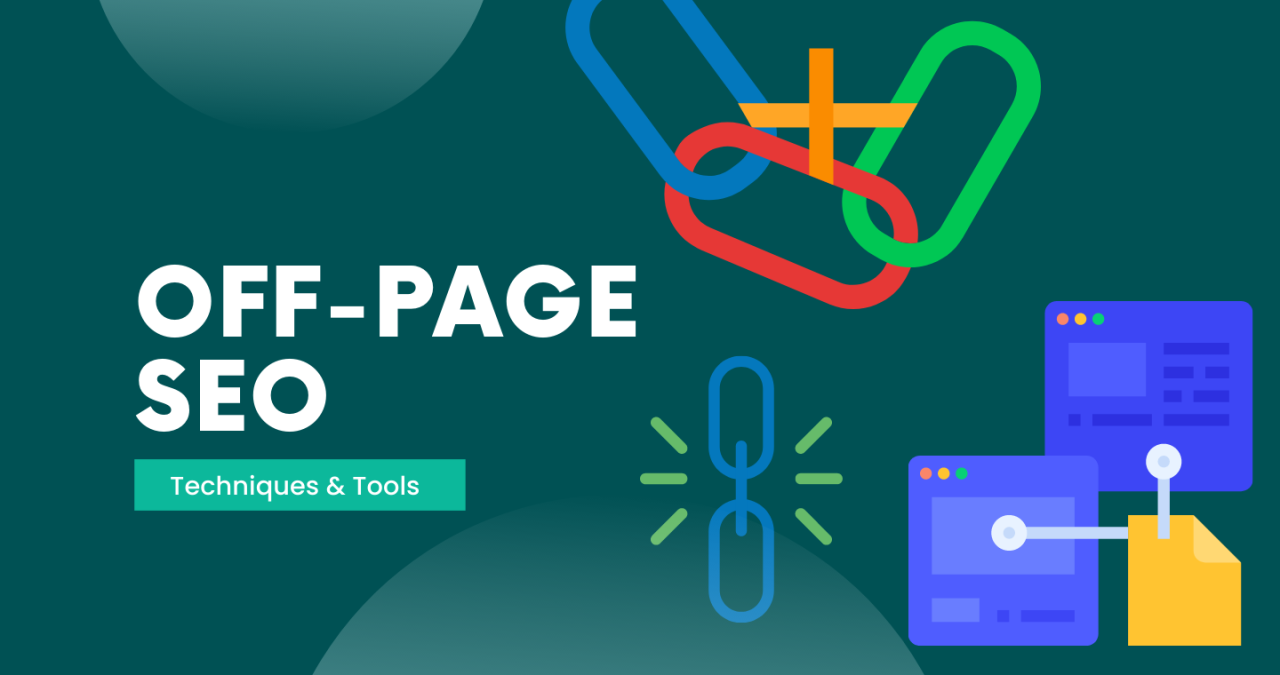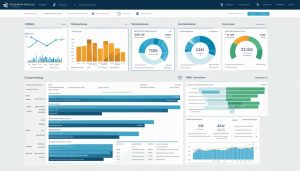1. Introduction to Off-Page SEO
Off-page SEO, also known as off-site SEO, encompasses a set of optimization techniques that aim to improve your website’s ranking in search engine results by leveraging external factors. Unlike on-page SEO, which focuses on optimizing elements within your website, off-page SEO focuses on building credibility, authority, and relevance through factors such as backlinks, social media activity, and online mentions.

2. Off-Page SEO vs. On-Page SEO
It is essential to understand the difference between off-page SEO and on-page SEO to develop a comprehensive SEO strategy. On-page SEO refers to the optimization of elements within your website, such as meta tags, keyword optimization, and internal linking. On the other hand, off-page SEO is concerned with activities that occur outside of your website, such as link building, social media marketing, and influencer collaborations.
3. The Importance of Off-Page SEO
Off-page SEO plays a crucial role in determining your website’s credibility and authority in the eyes of search engines. Search engines, like Google, consider off-page SEO factors, such as the number and quality of backlinks, to assess the relevance and trustworthiness of your website. A strong off-page SEO strategy can help you outrank your competitors and drive organic traffic to your website.
4. Types of Links for Off-Page SEO
Links are a fundamental component of off-page SEO. There are three primary types of links:
Natural Links
Natural links are links that spontaneously occur when other websites find your content valuable and choose to link to it. These links are genuine endorsements of your website’s quality and relevance.
Built Links
Built links are acquired through proactive outreach efforts, such as reaching out to webmasters, publishers, or journalists. These links require some effort on your part but can provide valuable exposure and backlinks.
Created Links
Created links are self-submitted links that are typically found on directories, forums, or press releases. However, it is essential to note that search engines generally frown upon this type of link building tactic, as it can be perceived as a black-hat SEO practice.
5. Factors Influencing Link Value for Off-Page SEO
When building links for off-page SEO, it is crucial to consider the factors that influence the value and authority passed by a link. These factors include:
Anchor Text
The anchor text used to link to your website can impact the relevance and context of the link.
Freshness or Age of the Link
The freshness or age of the link can influence its value. Fresh links from reputable sources may carry more weight than older links.
Number of Links on the Linking Page
The number of links present on the linking page can affect the equity passed to your website. Links from pages with fewer outgoing links may have more value.
Relevance between Linking Site and Your Website
The relevancy between the linking site’s subject matter and your website’s content can influence the link’s authority and value.
Trustworthiness of the Linking Site
Links from trustworthy and authoritative websites can significantly impact your website’s credibility and ranking.
Authority of the Linking Site and Linking Page
The authority of the linking site and the specific page linking to your website can determine the value and influence of the link.
6. Effective Strategies for Off-Page SEO
Implementing effective off-page SEO strategies can significantly enhance your website’s visibility and ranking. Here are some strategies to consider:
Link Building
Link building involves acquiring high-quality backlinks from reputable websites. You can achieve this through various methods, such as guest blogging, influencer collaborations, and reaching out to webmasters.
Guest Blogging
Guest blogging allows you to contribute valuable content to other websites in your industry. This not only helps you build backlinks but also positions you as an authority in your niche.
Social Media Marketing
Leveraging social media platforms can help increase brand awareness, drive traffic to your website, and encourage social sharing of your content. Regularly posting engaging and shareable content can boost your off-page SEO efforts.
Influencer Marketing
Collaborating with influencers in your industry can significantly impact your off-page SEO. When influencers endorse your brand or content, it can create a ripple effect of increased visibility and credibility.
Content Writing for Publications
Writing and publishing content on external publications can establish you as a thought leader in your industry. It can also provide opportunities for natural backlinks and brand mentions.
Social Bookmarking
Social bookmarking involves submitting your content to platforms like Reddit, StumbleUpon, and Tumblr. This can help increase your content’s visibility and attract targeted traffic.
7. Measuring the Success of Off-Page SEO
Measuring the success of your off-page SEO efforts is crucial to understand the impact of your strategies and make necessary adjustments. Key metrics to track include website traffic, backlink profile, social media engagement, and online mentions.
8. Best Practices for Off-Page SEO in 2023
As search engine algorithms evolve, it is essential to stay updated with the latest best practices for off-page SEO. Some recommended practices for 2023 include:
- Focus on building high-quality, relevant backlinks from authoritative websites.
- Prioritize user experience and engagement across all online platforms.
- Build a strong presence on social media and engage with your audience regularly.
- Collaborate with influencers and thought leaders to expand your reach and credibility.
- Create valuable and shareable content that resonates with your target audience.
- Monitor and manage your online reputation to build trust and credibility.
9. The Future of Off-Page SEO
As technology continues to advance, the future of off-page SEO is likely to be influenced by emerging trends such as voice search optimization, mobile-first indexing, and artificial intelligence. Staying ahead of these trends and adapting your off-page SEO strategies accordingly will be crucial for maintaining a competitive edge.
10. Frequently Asked Questions (FAQs)
- What is the difference between on-page and off-page SEO?
- How do backlinks impact off-page SEO?
- Can I control off-page SEO?
- How can social media marketing contribute to off-page SEO?
- Are all backlinks equally valuable for off-page SEO?
11. Conclusion
Off-page SEO is an integral part of any comprehensive SEO strategy. By focusing on building high-quality backlinks, engaging on social media, collaborating with influencers, and creating valuable content, you can enhance your website’s visibility, credibility, and ranking in search engine results. Stay updated with the latest best practices and adapt your strategies to future trends to ensure continued success in off-page SEO.




No comments! Be the first commenter?